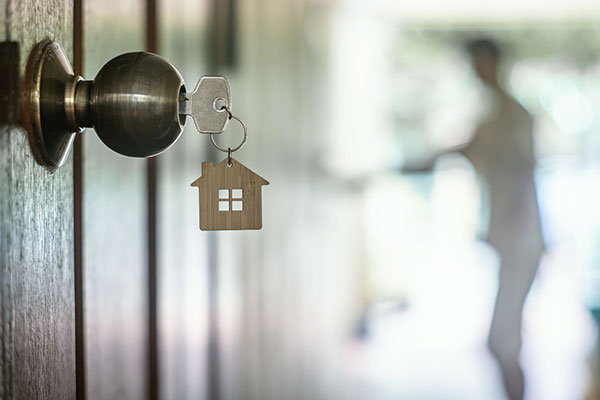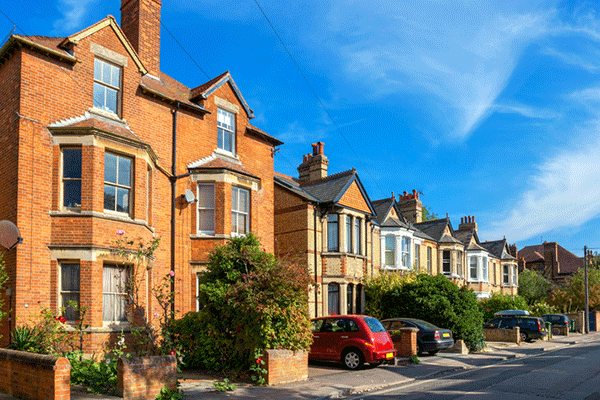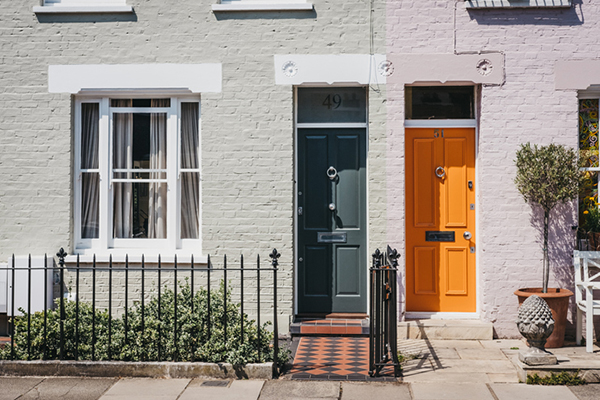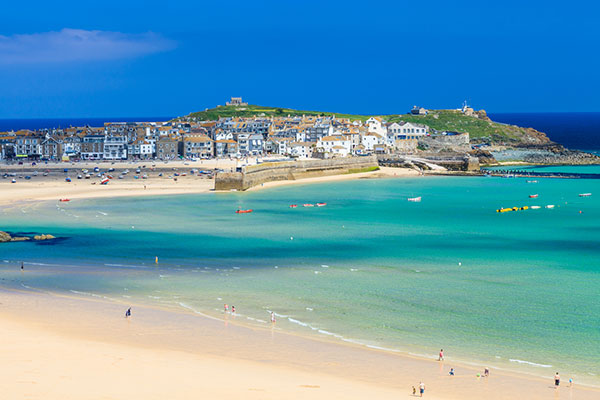What does Covid-19 mean for house prices, and will it be the property market’s biggest crash?
The coronavirus pandemic could influence the type of property we choose to buy in the future, and its lo…
1st June 2020 11:16
The coronavirus pandemic could influence the type of property we choose to buy in the future, and its location. Alexander Garrett examines what’s happening in the market as it starts to unfreeze.

If the advice during lockdown to “stay at home” was relatively simple, the likely impact of Covid-19 on the value of that home is anything but. The virus has unleashed a whirlwind of economic and psychological effects that seem inevitably destined to bring down house prices in the near future, but over the longer term may subtly change our relationship with the place we live, and even signal a shift in the type of property that people want to own.
The full extent of these impacts is going to take some time to become apparent, though, with concomitant repercussions for the nation’s wealth, since property remains most individuals’ biggest asset.
- Six ways Covid-19 could change the world forever
The year started with a surge for the housing market. After three years of inertia, Brexit was finally “done” and all those people who’d been waiting for the uncertainty to be resolved so they could at last move home appeared ready to push their plans forward.
According to the Nationwide, for example, year-on-year house price growth increased to 3.7% in April – reflecting mortgages granted before coronavirus struck – the highest rate since February 2017. And Robert Gardner, Nationwide’s chief economist, said: “In the opening months of 2020, before the pandemic struck the UK, the housing market had been steadily gathering momentum. Activity levels and price growth were edging up thanks to continued robust labour market conditions, low borrowing costs and a more stable political backdrop following the general election.”
According to the Office for National Statistics, the strongest growth was in London, with prices up 4.7% in March, the biggest jump since December 2016.
Lockdown brought this flurry of activity to an immediate halt. According to Liam Bailey, head of research at estate agency Knight Frank, viewings fell immediately by 98% (the 2% being virtual), new buyers were down 60%, new properties on the market dropped by 90% and offers by 80%.
For some, the surprise was that any activity was happening at all. With everybody confined to their houses during the early stages of lockdown, the only way you could view a property to buy or rent was by video. Andrew Perratt, head of country residential at Savills, revealed that estate agents had found a new way to show properties. “We’ve been offering what we call a ‘virtual viewing’,” he said. “Some of our more creative clients have taken short video clips with mobile phones and we’ve been sharing those with any interested buyers.
“But far and away the most success we’ve had with virtual viewings has been using live video streams, where we as agents host a WhatsApp or Facetime call, and we patch in both buyer and seller. We ask the seller to walk around their property holding their phone and we as agents do our job talking the buyer through the property.”

The decision to re-open the property market in England in mid-May came earlier than some expected and was seen as an indicator of the government’s determination to get the economic recovery under way. The Ministry of Housing said: “The government has amended the coronavirus (Covid-19) regulations to make clear that people who wish to move home can do so.”
Advice to the public was to keep physical viewings to a minimum, maintain social distancing, and be flexible. Advice to estate agents was to monitor buyers and sellers for any signs of infection, and conduct viewings safely – no open houses or giving lifts to customers were to be allowed. Housing minister Robert Jenrick chipped in with advice for agents “to ensure doors and windows are opened during viewings”. Early data suggested a surge of activity in the midst of what is usually the peak moving season, with some agents predicting a summer stampede.
Where next for the property market?
So that was the build-up. But where does the market go from here? With the UK economy facing its deepest recession in 300 years, according to the Bank of England’s Monetary Policy Committee, few doubt that house prices will fall in the short term; but the question is by how much?
That will largely depend, of course, on the shape of the downturn, with a swift recovery the scenario most likely to mitigate price falls. Lucian Cook, head of residential research at Savills, points out that unlike previous recessions, price rises have been modest in the run-up to this downturn, which provides some level of support for the market; and he also notes that interest rates remain low, reducing affordability pressures.
In a recent webinar to clients and the media, he looks at two scenarios: the first, a relatively benevolent downturn predicted by Oxford Economics, in which second-quarter GDP is down 8% before rebounding rapidly; the second a more dramatic downturn of 35% in Q2, based on forecasts by the Office for Budget Responsibility.
In the case of the first scenario, Cook expects house prices to fall by 5% in 2020 and bounce back by the same amount next year; in the more severe scenario, prices would fall by 10% this year and rise by 4% next. In either case, he believes the market will still meet Savills’ earlier forecast of growing by 15% overall over the course of five years – the growth would simply be delayed.
Knight Frank has also been crunching the figures. Its head of research Liam Bailey emphasises the difficulty of making sound predictions in a fast-moving situation, but says: “Probably on revision, at the end of 2020, prices will slip 7% in the UK as a whole and 5% in prime central London property, compared to the beginning of the year.”
And Richard Donnell, head of research at property website Zoopla, leans on the positive side. “We haven’t come into the downturn with a red-hot market, with people borrowing crazy amounts, 95% mortgages,” he argues. “So maybe the market will fall less than last time.”
Unemployment is a key driver of price house falls during downturns; in this instance, says Donnell, the outcome will depend to some extent on factors such as how long government support continues for those on furlough, and how banks respond to mortgage arrears.

Although there remains a huge pent-up demand to move home – a legacy of the Brexit inertia – it’s expected that the number of transactions will be significantly down. Liam Bailey says: “There were about 1.18 million transactions in the UK last year. Before Covid, we assumed that with the help of a ‘Boris bounce’ that would increase to 1.26 million. But we have reduced the forecast now to 728,000 transactions, based on our modelling, so a decline of about 40%. That is the lowest for 20 years and represents 500,000 missing sales.”
Lower prices will be welcomed by some, including young people eager to get on the housing ladder, who will see this as a buying opportunity, and overseas investors taking advantage of sterling’s weakness. But while buyers might expect to pay less, it’s far from clear that sellers will be willing to accept lower prices, particularly in the upper reaches of the central London market.
Camilla Dell of Black Brick, a buying agent, says: “Clients are nervous that if they purchase today the property will be worth less in six or 12 months’ time – none of my clients are willing to go ahead and transact at prices they agreed in January or February.” She adds: “There is a huge gap between where buyers and sellers feel the market is at – a kind of Mexican stand-off.” Deals are most likely to go ahead where sales are forced through death, debt and divorce, says Dell.
And then there’s the question of whether coronavirus will prompt a shift towards larger properties further from urban centres. Paula Higgins, founder and chief executive of Homeowners Alliance, says: “Home has become much more important as a result of coronavirus. And people are realising they doesn’t need to be so close to transport, but their home does need to have good wifi, storage and home working. If they live in London, maybe in a small property, they may realise they can go much further out and just come in once a week. So, I do think there will be a fundamental change in the market and how properties are valued.”
But while some will want to move quickly in case there is a second lockdown, others will be nervous at the health risk of somebody coming to view their property, she points out. Fear and nervousness are unknown factors in the next few months.
Perratt at Savills says that during the lockdown period, buyer enquiries were notably higher in countrywide offices than in London. “The value gap between our cities and the country has been growing over the last few years and the country looks pretty good value for money right now,” says Perratt. “There are still areas of the country where prices are 15-20% below their peak of 2007.” Few expect to see a mass exodus from London and other cities, but the balance may shift, even in the short term.
The financial environment for homebuyers and investors looks broadly benign for now, with interest rates at a record low and expected to remain that way – the Bank of England has even been contemplating negative rates to get the economy going. And it could receive a further boost if the government accedes to a call led by the chartered surveyors’ association, RICS, for a stamp duty holiday, which has been deployed in previous downturns to kickstart the property market. That would be especially welcome for buyers in the second home and higher value areas of the market, where stamp duty is the highest. Facing a huge growth in public debt, though, the government may be inclined to see how quickly the market revives under its own steam.
The housing indices maintained by the likes of the Halifax and Nationwide, which everyone normally relies on to know what is happening in the market, have themselves stopped functioning normally due to the tiny number of transactions during lockdown, and it will take a while for the picture to become clear. Will this go down as the housing market’s greatest crash? Or will it be a swift downturn followed by an equally swift recovery? We will find out in due course.

Putting a bet on a holiday let
Holiday let owners can rarely have been embroiled in so much controversy as they have during the pandemic. First there was the question of whether they – or their guests – should go to the holiday home during lockdown. The answer from all quarters was an emphatic “no”, with the perceived risk that they would be bringing the virus with them.
Then there was the revelation that many holiday homeowners – 5,000 in Cornwall alone – were claiming emergency small business grants of £10,000 apiece, in spite of the fact that many pay no council tax or business rates thanks to a loophole. Meanwhile, some owners of holiday lets who had been forced to cancel all their bookings found that they were not covered by business interruption insurance, since Covid-19 was not an identified disease at the time their policy was written. And while some holiday lettings owners and their agents have offered full refunds to guests who could not take their holiday, others have refused to do so.
All of which would be enough to put off anyone investing in a short-let property. Indeed, one Edinburgh letting agent, David Alexander, claims: “We have been inundated with enquiries from Airbnb owners who are wanting to put their property on to the long-term lettings market. They have had all their bookings cancelled and there is little likelihood of an upturn in the market any time soon, so they are transferring to the long-term market.”
Coronavirus has certainly been a big setback for owners whose property has been left empty while costs continue to rack up, but it has also provided big challenges for landlords of assured shorthold tenancies (ASTs). There are significant tax advantages to having a short let or holiday let, and nightly rents are often much higher; but occupation may be much lower, it is a more labour-intensive business, and some cities are restricting the number of nights Airbnb-type properties can be available.
If the holiday season takes off post-lockdown, there are grounds for optimism for owners of holiday lets: with air travel strongly discouraged and the threat of quarantine for those coming back from overseas holidays, there could be unprecedented demand for staycations – and some think that will continue in the years to come.
This article was originally published in our sister magazine Money Observer, which ceased publication in August 2020.
These articles are provided for information purposes only. Occasionally, an opinion about whether to buy or sell a specific investment may be provided by third parties. The content is not intended to be a personal recommendation to buy or sell any financial instrument or product, or to adopt any investment strategy as it is not provided based on an assessment of your investing knowledge and experience, your financial situation or your investment objectives. The value of your investments, and the income derived from them, may go down as well as up. You may not get back all the money that you invest. The investments referred to in this article may not be suitable for all investors, and if in doubt, an investor should seek advice from a qualified investment adviser.
Full performance can be found on the company or index summary page on the interactive investor website. Simply click on the company's or index name highlighted in the article.